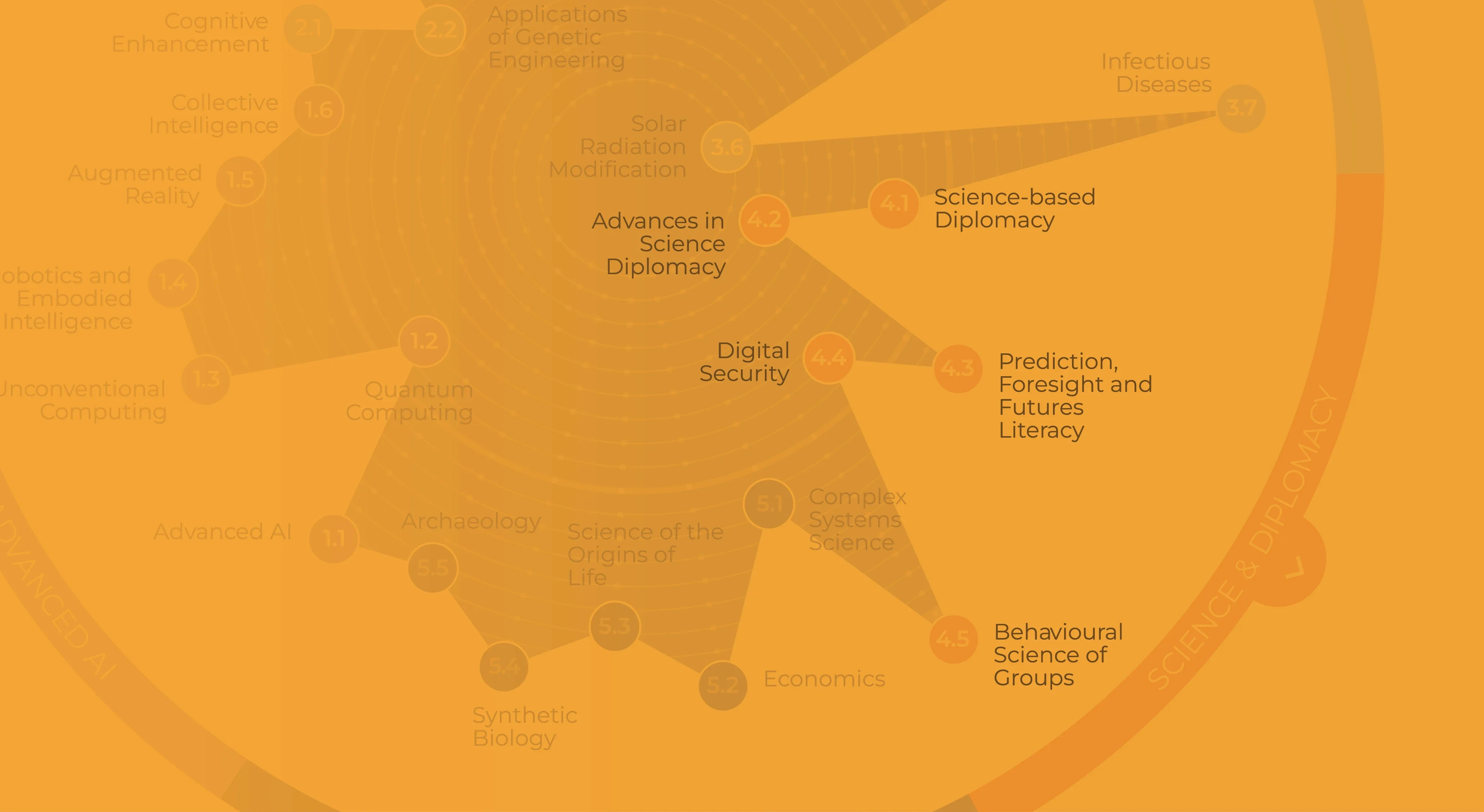That gives science and technology a central role in multilateralism. Diplomats and policy-makers across the globe are thus ever more focused on understanding and using research breakthroughs, both to anticipate their impact on individuals, society and the planet, and to apply them in their own work. Here we provide insights into the ongoing research into key topics and capabilities in this field, including new approaches to modelling diplomacy, the future of prediction and foresight, methods to understand group behaviour, anticipated advances in digital security and an increasing impetus for futures literacy.






